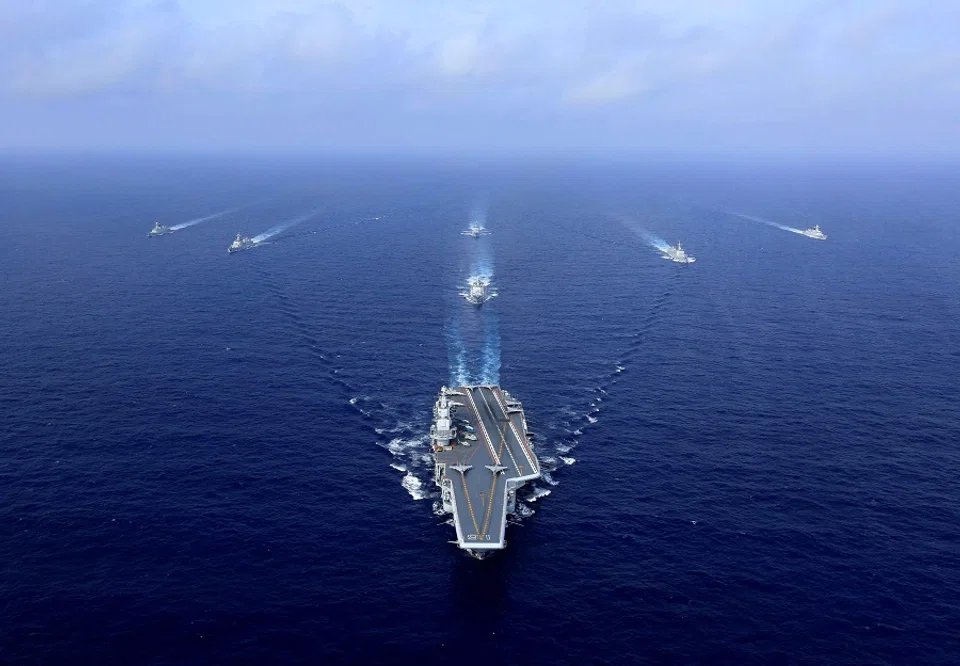Can Taiwan fight for as long as it takes?
Taiwan Defence Minister Chiu Kuo-cheng said in parliament yesterday that Taiwan stands ready to defend itself. His remarks come on the back of an assessment by a US commander that mainland China may take Taiwan by force in the next six years, and the US and Japan's joint statement on the importance of peace and stability in the Taiwan Strait. Chuang Hui Liang reports.

Amid the dangers and risks in the Taiwan Strait, Taiwan's Defence Minister Chiu Kuo-cheng said in parliament yesterday that mainland China is "capable of starting a war", and Taiwan will do all it can to defend itself. He emphasised that "we have to save our own country", and that the exact timing of a mainland attack is immaterial as "Taiwan will fight no matter how long it takes" and "it is not a question of the number of days".
Chiu made these remarks when giving his first report as defence minister to the Legislative Yuan's foreign affairs and national defence committee yesterday. Ruling and opposition legislators expressed their concern over comments by Admiral Philip Davidson, commander of the US Indo-Pacific Command, that a military confrontation could occur in the Taiwan Strait in the next six years. As it would take 17 days for the US to respond and get to the first island chain with aid, legislators asked how long Taiwan would be able to last, prompting Chiu's response above. (NB: The first island chain consists of the Kuril Islands, the Japanese archipelago, the Ryukyu Islands, Taiwan, the northern part of the Philippines archipelago, and the Malay Peninsula.)
On 16 March, US Secretary of State Antony Blinken, US Defence Secretary Lloyd Austin, Japanese Minister of Foreign Affairs Toshimitsu Motegi and Japanese Minister of Defence Nobuo Kishi met in Tokyo for a "2+2" meeting. They reiterated at a joint press conference "the importance of peace and stability in the Taiwan Strait" and said that they "remain opposed to any unilateral action that seeks to change the status quo, including in the East and South China Seas".
Yesterday, Taiwan's foreign ministry gave a positive response to this, sincerely thanking the US and Japan for openly expressing the importance of peace and stability in the Taiwan Strait. It also said that the Taiwan government will continue to work closely with the US, Japan, and countries with similar ideals on existing solid foundations, to firmly safeguard the democratic system and the rule-based international order, and work together to maintain regional peace, stability, and prosperity.

In response to a question, Chiu said that if other countries are able to reach a common understanding on the Taiwan Strait, that is, they are able to understand Taiwan's pressures when facing a big and hostile country, this will be a positive step for future cooperation with Taiwan, whether based on existing foundations or when discussing other issues. "We are all happy to see it happen," said Chiu.
"We have to save our own country. We are not thinking about the number of days (of attack). We will fight no matter how long it takes. It is not a question of the number of days." - Taiwan Defence Minister Chiu Kuo-cheng
Ready whether it is 17 or seven days
Taiwan's defence ministers are always asked how long Taiwan would last in a military conflict, and whether the US army would come to its aid. When asked at the parliament meeting yesterday, Chiu replied that whether it is 17 or seven days, the military is ready for whatever happens "in the next hour, much less six years". He stressed, "We have to save our own country. We are not thinking about the number of days (of attack). We will fight no matter how long it takes. It is not a question of the number of days."
Taiwan's defence ministry recently hinted that it will work with the US to develop a missile defence system against the threat of the PLA's Dongfeng missile series. Chiu said yesterday that Taiwan has many channels of communication with friendly armies and some issues can be added for long-term discussion under this arrangement. However, as to whether talks can come to fruition would not only depend on Taiwan's efforts, but also both parties' understanding and reading of the issues. The end result is something that he cannot guarantee.

To a question from opposition Kuomintang (KMT) chairman Johnny Chiang on whether the marine corps will be deployed back to defend Itu Aba (a Taiwan-occupied island in the disputed Spratly Islands also known as Taiping island, 太平岛) if tensions rise or a conflict breaks out in the South China Sea, Chiu said there are no plans to do so at this point, while future plans would depend on the situation, but the first option would be to ramp up on artillery response training.
On 16 March, United Daily News reported that Taiwan's air force base at Chiayi was continuing its rehearsals for a ceremony of its F-16V fighter planes. Air Force Chief of Staff Huang Chih-wei also confirmed in parliament on 17 March that the air force has upgraded 42 F-16 A/B jet fighters to the new F-16V standard, and a ceremony will be held at the Chiayi Air Force Base on 30 March to mark the F-16Vs' entry into service.





![[Photos] Fact versus fiction: The portrayal of WWII anti-Japanese martyrs in Taiwan](https://cassette.sphdigital.com.sg/image/thinkchina/3494f8bd481870f7c65b881fd21a3fd733f573f23232376e39c532a2c7593cbc)